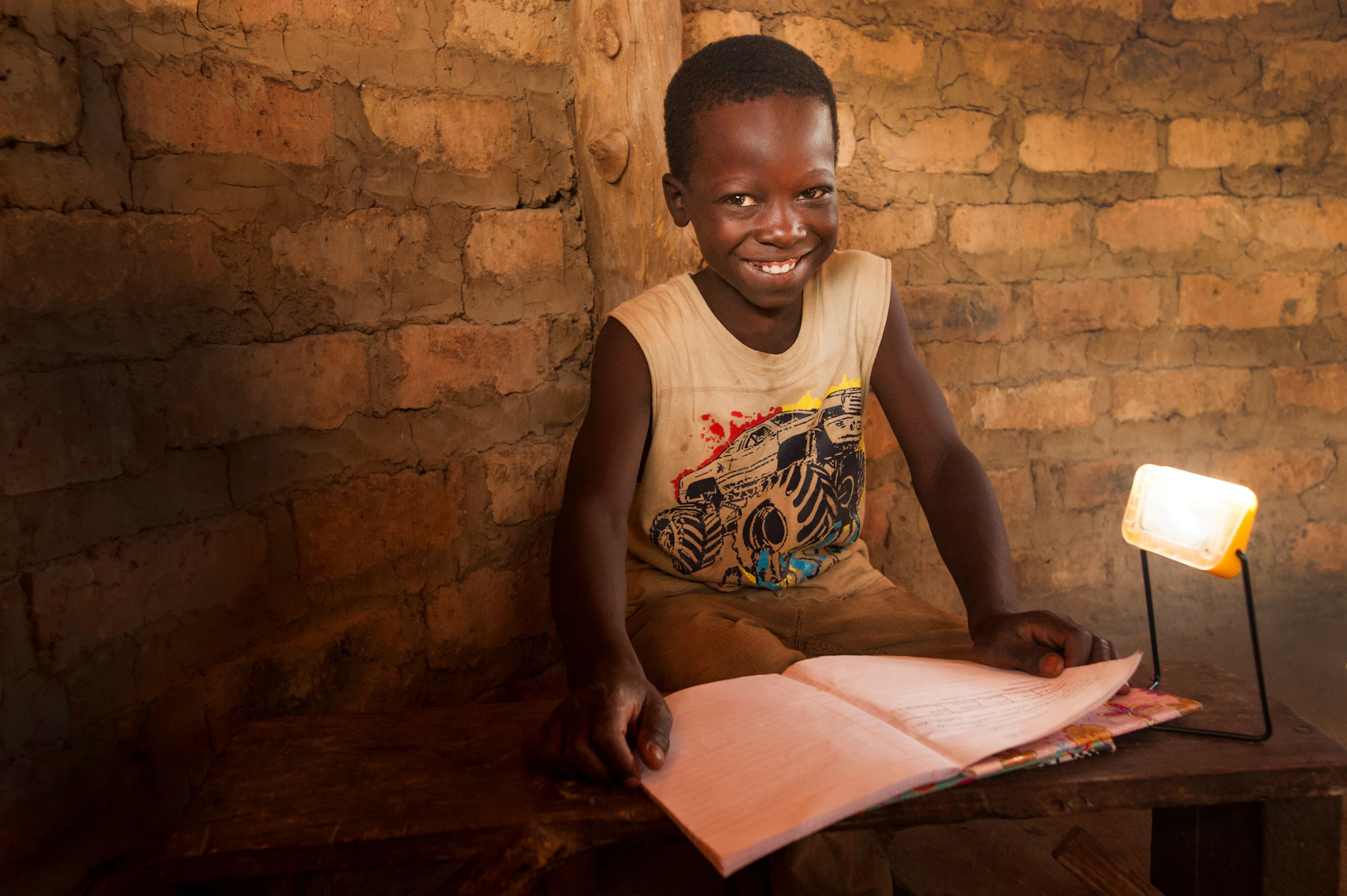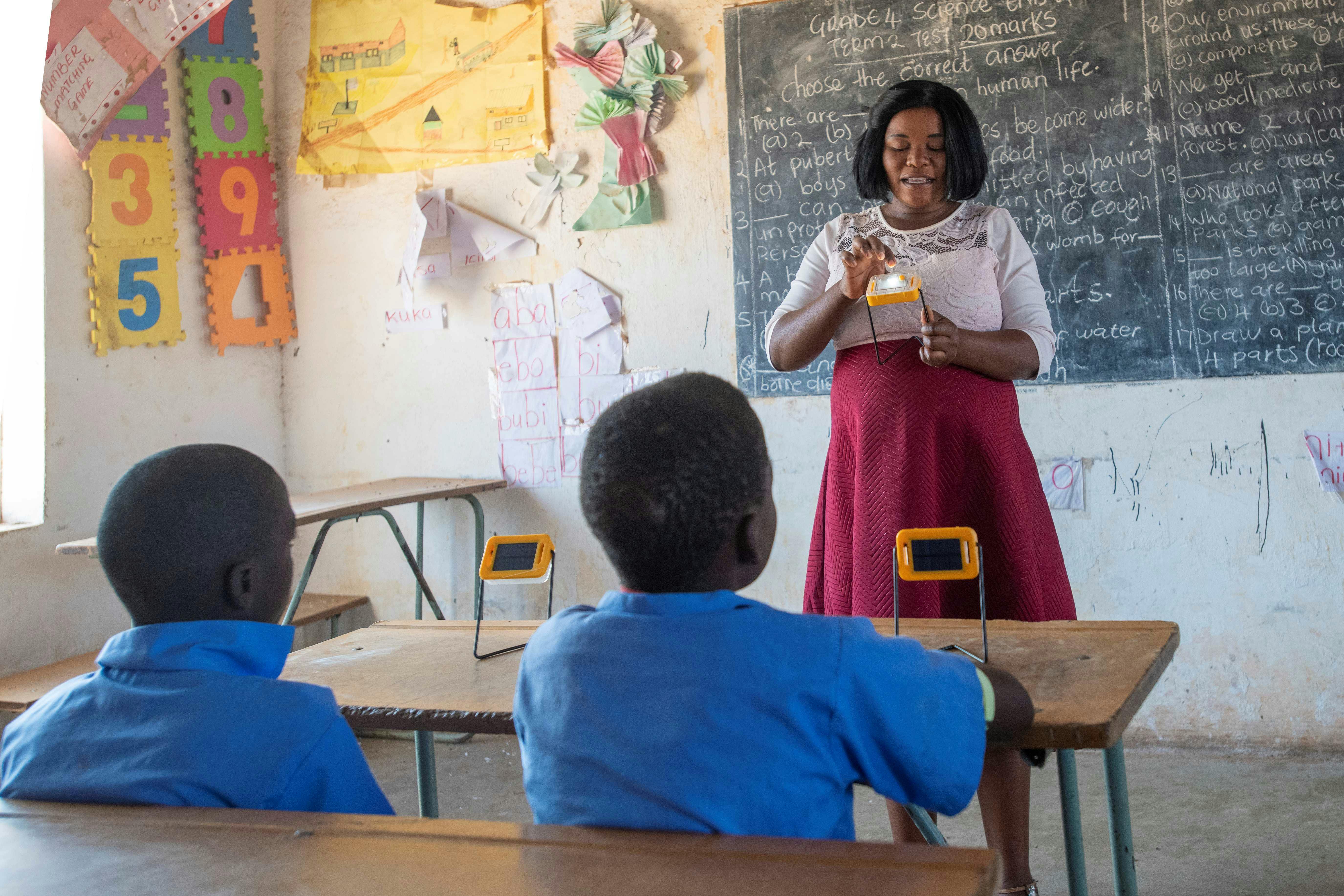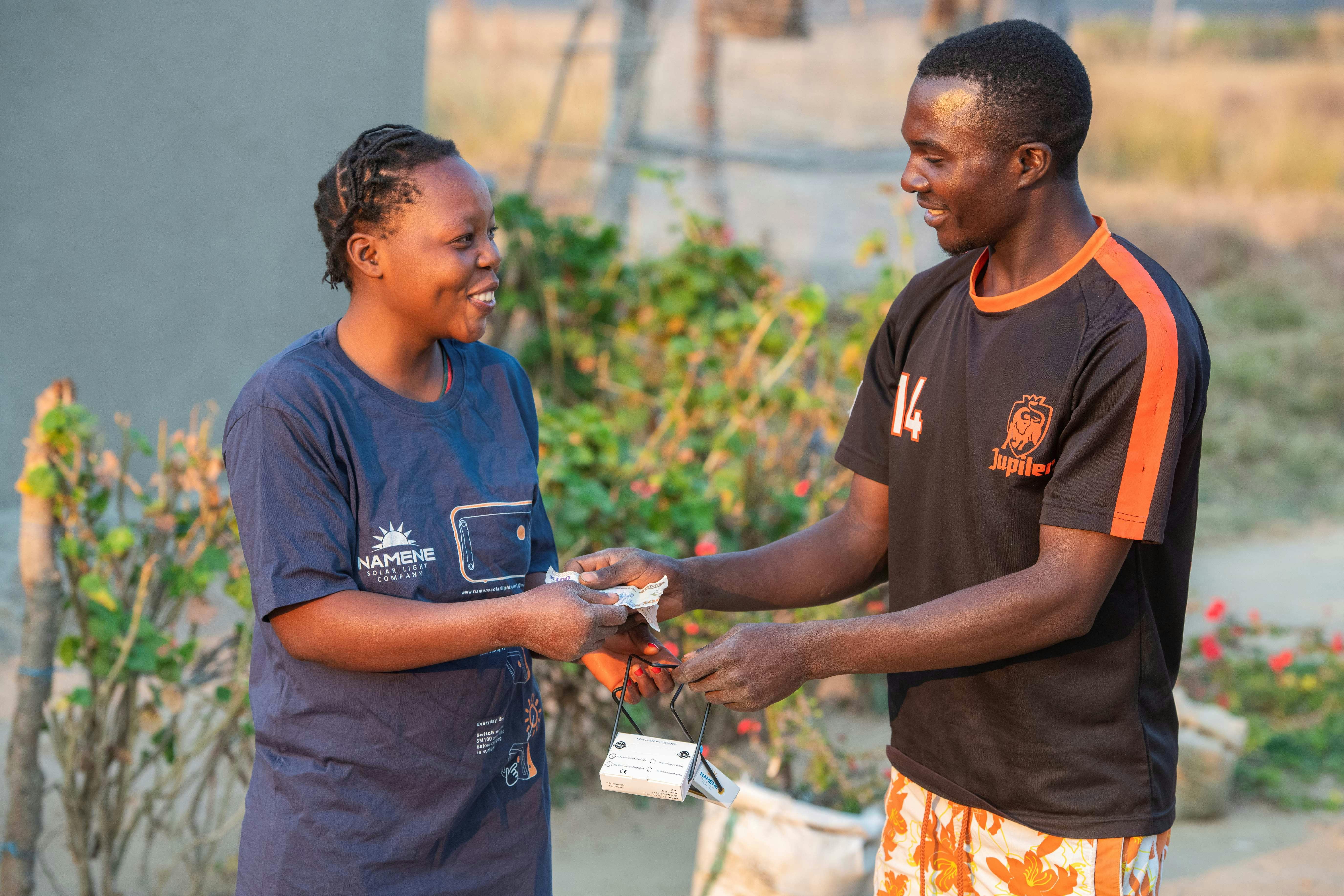Our livelihoods depend on access to electricity. It is something most of us take for granted. But for 675 million people in the world today, with the vast majority in sub-Saharan Africa, access is not yet a reality.

Co-authored by project developer Namene and Gold Standard
For countless families, their only access to light after dark is a homemade kerosene lamp or candle, both very dim sources of light. These sources of light are created through combustion making them dangerous and expensive for the users. Burning kerosene emits toxic black carbon and damages eyes and lungs, while lamps and candles frequently cause house fires. In addition to the dangers, the economic impact is significant on families. Purchasing the fuel or paraffin can cost up to $100 per year, up to approximately 10% of their household income.
These factors seriously limits what people can do after sundown, especially in tropical regions where nights are long. In rural Zambia, the toilet and the cooking is traditionally outside, normally with no reliable source of light available to walk around the house and cook in safety. Children often need to rely on a poor, dim candle light to read and study at night. Most rural families rely on subsistence farming for their income, which means that during periods of drought or poor harvest there is no money to buy candles or kerosene and they have to stay in the dark at night.
Energy inequality traps millions of already disadvantaged families in an unbreakable cycle of poverty. If no additional measures and finance are put in place to meet the United Nations Sustainable Development Goal of universal electricity access (SDG7), at the current pace, some 660 million people will still be unserved in 2030, according to the International Energy Agency (IEA) [1].

Paradoxically, Africa has the greatest solar power potential in the world. The need to harness the sun as a boundless and clean energy source for millions living off-grid, is as obvious as it is urgent. The technology exists, but new business and finance models are needed to make clean and safe lighting accessible to those who need it most. This is what drives Namene’s work; they make quality everyday products affordable to all by enabling families to buy what they need when they are able to, using their carbon-saving value to minimise prices through the sale of Gold Standard Verified Emissions Reductions (VERs).
Through its Gold Standard-certified projects, Namene has already deployed over 1.2 million pico solar lights in several countries in Africa since 2021. This includes over 720,000 in Zambia, where 86% of the rural population do not have access to electricity and most live below the international extreme poverty line. Namene’s lights are currently distributed to rural households across most provinces in Zambia. Thanks to the sale of its carbon credits, Namene’s lights are priced at 70% discount on their retail value, enabling families to purchase solar lights and save money by avoiding recurring spend on fossil fuels or candles.
Namene’s climate projects have been meticulously designed - much like their products - to maximise positive impact. Every carbon credit generated reaches on average six families, delivering high social impacts in last mile and remote communities where the benefits of solar lighting goes far beyond avoiding greenhouse gas emissions. Through rigorous monitoring and after-sales service the company uses a stringent internal audit process to monitor the performance and impacts on its lights, drawing on digital tools and regular customer surveys.
SUSTAINABLE DEVELOPMENT BENEFITS
As part of its certification process, Gold Standard verifies the contribution of Namene’s clean lighting project in Zambia towards the United Nations Sustainable Development Goals (SDGs). Independent monitoring assessments have, to date, shown the project has contributed towards:
- SDG 1: No Poverty – Namene solar lights tackle poverty by saving household expenditure on fuel, candles and batteries. Families in Zambia save on average $25 per year and cumulatively have already saved $9.2m US Dollars. The lights also unlock extra study hours for children, which helps break the cycle of poverty.
- SDG 7: Affordable and Clean Energy – The project makes solar lighting truly affordable and accessible to over 400,000 families in Zambia. Each carbon credit purchased results in around six families getting first-time access to clean and safe energy.
- SDG 13: Climate Action – Each Namene light avoids at least 92kg carbon emissions per year. In Zambia alone, over 10,000 tonnes of CO2 have been avoided to date through this project.
The project in Zambia has employed over 200 local people to deliver the lights and provide after sales services. Namene focuses on boosting local economies, using a diverse network of companies and NGOs to distribute and maintain products, and hiring community members – including many women - as sales agents in remote villages. Other project benefits range from improved education outcomes through additional hours of study, to enhanced health from the removal of toxic fumes and fire hazards.
All in all, supporting this project can go a long way to reducing climate, energy and social inequalities. For example, the sale of just 1,000 credits over a year, could result in $814,000 USD in cumulative savings, 180,000 extra hours for study with a clean bright light, and 31,000 people no longer exposed to fire risks or toxic fumes in their homes.

Bernardo Lazo, Head of Climate at Namene, oversees the development and monitoring of Namene’s clean lighting programme in Zambia. He explains:
“Namene’s approach demonstrates that we can make the voluntary carbon market work as a force for good and break the key barrier to the adoption of clean technology by those who need it most: affordability. Issuing Gold Standard Verified Emissions Reductions (VERs) is what allows us to bring quality products to those on the lowest incomes, and the financial benefits flow to them first and foremost."
One of Namene’s community-based sales agent in Zambia, Pride Siamenenga, adds:
“The Namene solar lights have improved our life so much. After I was hired as sales agent, I was able to pay for my younger siblings’ school fees and my mum was able to purchase three lights for my little brothers. I’ve seen improvements in my brother’s education and he has now graduated.”
SUPPORT THIS PROJECT
When carbon finance is leveraged with maximum integrity, as with Namene’s projects, the impact on millions of lives is significant and lasting. This impact can be scaled quickly, with new projects planned in additional parts of Zambia and other African countries in the near future, which will accelerate the transition to net zero and alleviate energy poverty.
By purchasing Namene carbon credits on the Gold Standard Marketplace, buyers make a genuine, proven and positive difference to the lives of thousands of low-income families and off-grid communities and contribute to a just energy transition that supports those that are most affected by climate change.
ABOUT NAMENE
Namene’s purpose is to empower every community through clean technology. The company designs and distributes highly reliable products that are most needed by those left out by current energy and utility models. Namene’s devices are designed to meet people’s daily needs while eliminating unsafe sources of combustion. Namene makes its products affordable to off-grid families by enabling them to buy what they need when they are able to, and by minimising prices through the sale of high-integrity carbon credits.
[1] IEA 2022 https://www.who.int/publications/m/item/tracking-sdg7--the-energy-progress-report-2023---executive-summary
